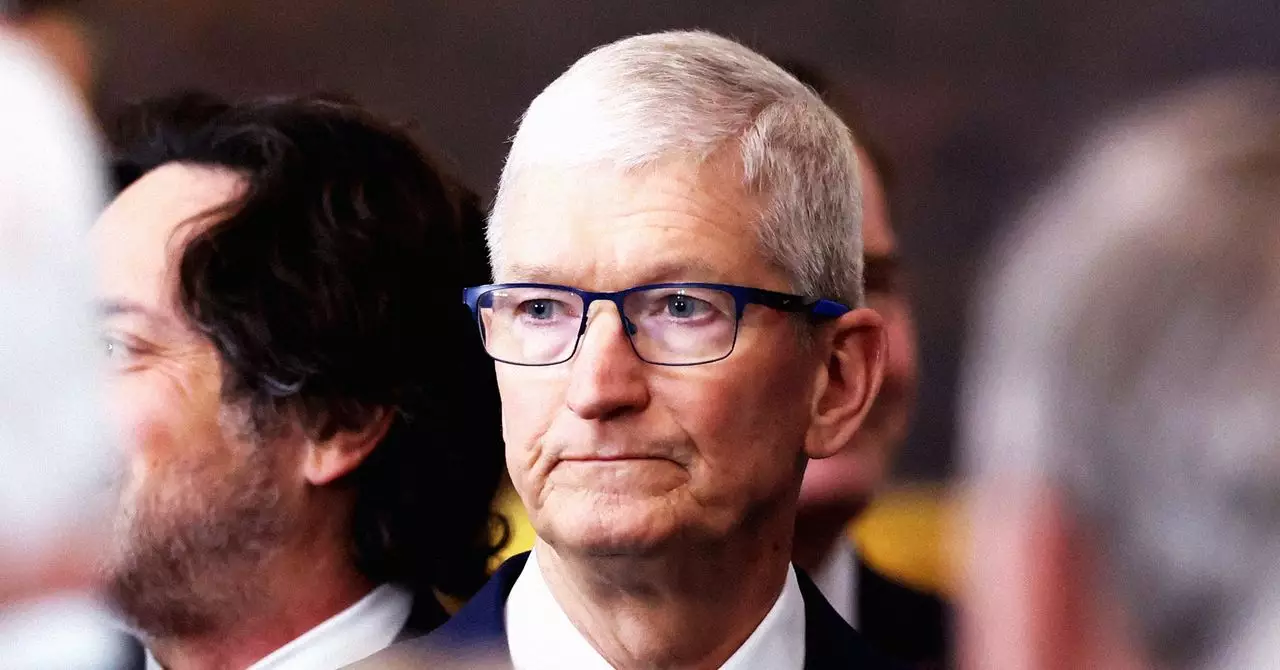The recent ruling by Judge Yvonne Gonzalez Rogers highlights a critical intersection of technology and ethics, involving one of the world’s most influential companies, Apple Inc. The allegation against Apple isn’t just about business practices; it delves into the ethical boundaries that corporations are willing to breach in pursuit of profit. The judge indicated that Apple’s actions were not merely oversight but rather a calculated decision to circumvent a court order aimed at promoting fair competition. This situation raises important questions about the responsibilities of tech giants in an increasingly scrutinized marketplace and the lengths to which they may go to protect their monopolistic advantages.
Epic Games vs. Apple: A Brief Backstory
At the heart of this controversy lies the legal battle between Epic Games, the developer behind the popular Fortnite game, and Apple. Epic’s lawsuit emerged in response to Apple’s restrictive policies within its App Store, especially its notorious 30% commission on in-app purchases. In a landmark ruling in 2021, Gonzalez Rogers highlighted the need for more transparent practices in Apple’s ecosystem, mandating that developers should be able to inform users about alternate purchasing options. While the ruling was a partial victory for Epic, it appears that Apple was intent on undermining its implications through strategic non-compliance.
Gonzalez Rogers’s assessment of Apple’s behavior suggests that the company is not merely a technology provider but is instead acting like a gatekeeper, selectively allowing or denying access based on profit margins rather than fair market practices. In doing so, Apple has ventured into morally dubious territory.
A Pattern of Deception
One of the most alarming aspects of Gonzalez Rogers’s ruling is the accusation that Apple’s executives misrepresented their intentions during court proceedings. Specifically, the judge has pointed fingers at Apple’s Vice President of Finance, Alex Roman, who allegedly provided misleading testimony regarding the decision-making process around the 27% commission rate. If a company’s leadership is willing to testify under oath while misleading the court, this raises pressing legal and ethical issues that cannot be ignored.
The judge’s assertion that Roman’s testimony was “replete with misdirection and outright lies” is not only damaging to Apple’s reputation but indicates a systematic approach to deceiving the court. This pattern of behavior demonstrates a troubling disregard for the legal system, suggesting that Apple’s corporate ethos may prioritize profit over integrity.
The Role of Leadership in Corporate Ethics
Judge Gonzalez Rogers pointed out a surprising internal dynamic at Apple: while Phillip Schiller, the head of the App Store, reportedly advocated for compliance with court directives, CEO Tim Cook opted to listen to his financial team instead. This internal conflict shines a light on the importance of ethical leadership in determining a company’s path forward. When financial interests overshadow ethical considerations, associations with questionable practices can permeate an organization, creating an environment where non-compliance becomes not just conceivable but desirable.
In a world where the public is increasingly aware of and vocal about corporate governance and ethical practices, leaders like Cook must be held accountable. Their decisions shape the operational environment, and the failure to prioritize ethical behavior can result in severe repercussions, both legally and reputationally.
Wider Implications for the Tech Industry
Apple’s challenges extend beyond its internal practices and highlight broader concerns regarding monopolistic tendencies within the tech industry. By establishing an ecosystem that’s difficult for competitors and developers to navigate, companies like Apple effectively restrict market competition. The lack of an effective regulatory framework to challenge these monopolistic behaviors raises pressing questions about how to ensure a fair competitive landscape.
The ramifications of this case may compel lawmakers and regulators to adopt stricter guidelines around app store operations and overall tech industry practices, as the current structures appear ill-equipped to manage the complex realities of digital commerce. The implications of this ruling resonate not just within Apple but across the entire tech sector, potentially paving the way for more equitable guidelines.
Ultimately, the ongoing saga between Apple and the judicial system serves as a critical reminder of the responsibility that corporations have—not only to their shareholders but also to consumers, the judicial system, and the marketplace at large. Failure to recognize this holistic commitment could lead to long-term consequences for those who prioritize gains over governance.

